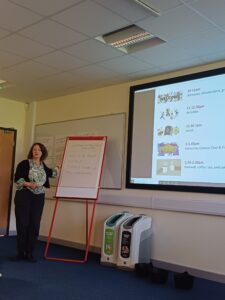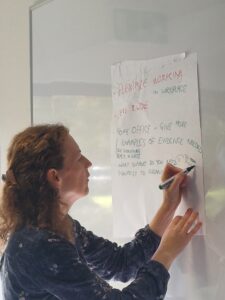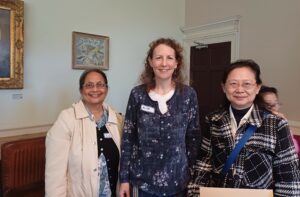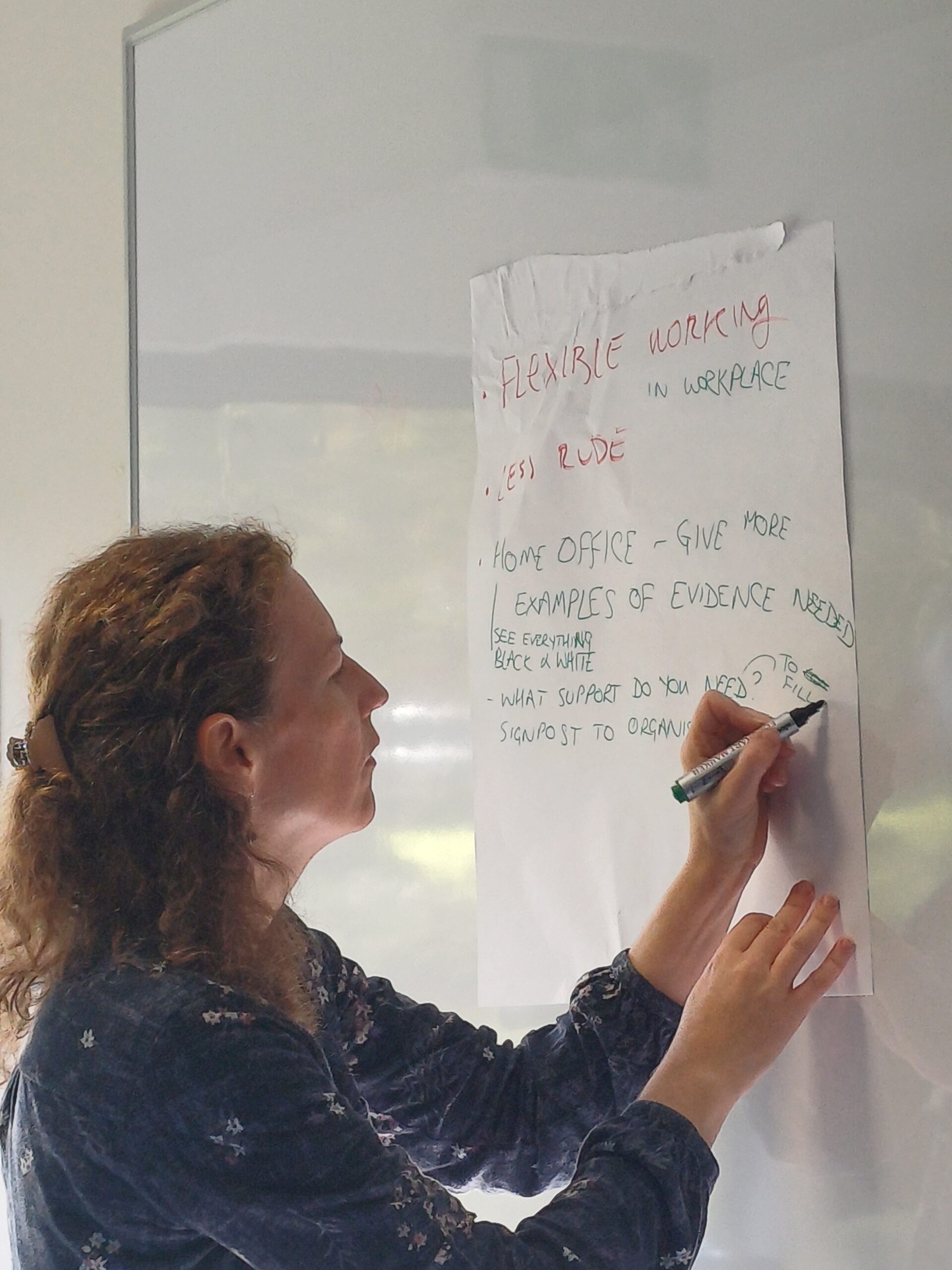On the 24th of October 2023, we held a workshop at the University of Reading to share key messages from our study with transnational families who had participated in the first phase of the research. We wanted to listen to families’ feedback and run a participatory theatre activity to generate insights to inform project workers and policymakers and improve support for transnational families.
The workshop was attended by families and young people that participated in our research and live in the Reading area, community researchers, researchers from the University of Reading, project workers from Reading Community Learning Centre, Refugee Support Group and the Children’s Society, as well as migrant and refugee actors from Rank and File Theatre.

Welcome and setting ground rules
The workshop began with a warm welcome by the research project leader Professor Ruth Evans, after which participants got the chance to introduce each other. We then collaboratively set the ground rules for the day.
Sharing key messages from the study and ranking them according to priority
Based on our analysis of the interviews conducted with transnational families in the UK, we identified nine key overall policy changes that transnational families would like to see to improve their ability to care for each other, to access formal services, and to enhance their wellbeing.
Our first activity of the day consisted in sharing these key nine messages and have participants rank them in order of priority. The need to improve official recognition of professional qualifications and to allow family reunification and travel for family members were voted as top priority areas.

Participatory theatre activity
The ranking of key messages was followed by the participatory theatre activity where actors from migrant and refugee background from Rank and File Theatre enacted various scenarios about the everyday lives of transnational families, based on the research findings. The scenarios highlighted the challenges they faced in caring for each other within and across borders and in accessing healthcare and formal services to meet their needs and enhance their wellbeing. Using a Forum Theatre/ Theatre of the Oppressed approach, we discussed each series of actions in the scenarios with participants and asked for suggestions of what could be done to support the characters in those scenarios and the change they would like to see. We decided together which actions and elements we wanted to use in the final film.

Visit to the Film Studios of the University of Reading
After lunch, workshop participants visited the Film Studios of the University of Reading where the refugee and migrant actors from Rank and Filed filmed the different actions and replays of the final scenario that participants had discussed in the morning. The first film shows a transnational family facing challenges in providing and accessing care and being refused visas for a family member, while the replay show more supportive responses from statutory service providers, drawing from the insights the workshop participants shared in the morning. The films will be used to inform policy makers and project workers.
Farewell reception, evaluation, and certificates to community researchers
We concluded the day with a farewell reception where we gathered participants’ views on the workshop in terms of what they enjoyed, what they learnt, and what could have been improved. The community researchers from the Reading area who conducted the interviews with families, transcribed and translated the interviews, and supported with the organisation of the workshop were awarded certificates and thanked for their invaluable contribution to the research.


